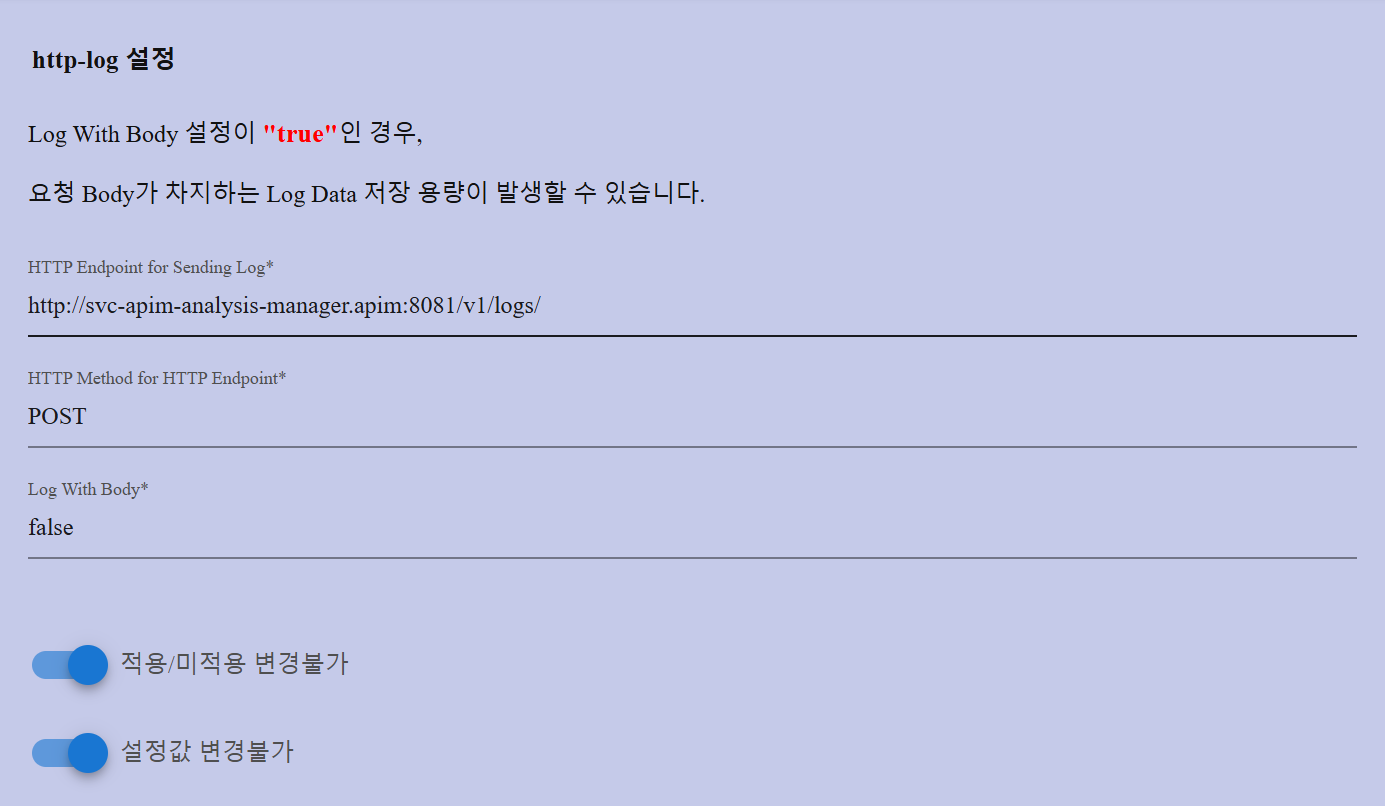HTTP Log (deprecated)
Overview
The HTTP Log policy is used to send log data (including API request/response information) to an external HTTP endpoint in real time. This allows integration with centralized logging systems, monitoring tools, or custom log processors.
It supports sending log data via a specified HTTP method (e.g., POST) to a configured logging URL. Optionally, request bodies can also be included in the log payload - however, enabling body logging may significantly increase the size of the transmitted log data.
Configuration Details

| Field | Type | Description |
|---|---|---|
| HTTP Endpoint for Sending Log | URL | The HTTP endpoint to which logs will be delivered. Example: http://svc-apim-analysis-manager.apim:8081/v1/logs/ |
| HTTP Method for HTTP Endpoint | Text | The HTTP method used when sending logs to the endpoint. Typically POST. |
| Log With Body | Boolean | If set to true, includes the full request body in the log payload. May result in large log sizes. Default is false. |
Cannot be changed: Toggle to prevent this policy from being removed.
Cannot change the setting value: Toggle to prevent changes to the configuration values after setup.
If Log With Body is enabled, the request body content will be transmitted to the configured log endpoint, which may expose sensitive or large data. Use this setting with caution in production environments.